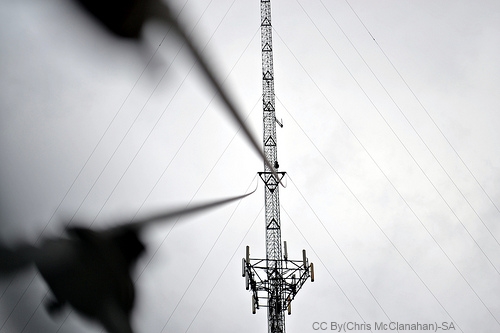“Digital Argentina”: regulation and, future?
by Digital Rights LAC on January 30, 2015
In Argentina, the year 2014 ended with a highly relevant news for policies, for regulation as well as for convergent and communications market. The National Congress passed the Digital Argentina bill in extraordinary sessions.
By Santiago Marino*.
The executive branch’s initiative was sent to the Congress unexpectedly, without previous debate and with the possibility to generate impacts on economic, regulatory and socio-cultural terms within the extended audiovisual space (that is, the set of supports and windows which, as a result of a series of technological advances, generate different spaces, business models and types of links between supply and demand of contents and audiovisual media means).
The convergence between telecommunications and the audiovisual space has a long technical record and has been installed in social usage. Its exclusion from the law 26522 on Audiovisual Communication Services -LSCA- (passed in Argentina on October 2009 after a long debate and a wide participation of citizens), meant missing an important opportunity to manage the process, to establish competitive conditions for a dynamic market and to limit the levels of property concentration, which has negative effects (economic and symbolic) only for citizens, users, consumers.
As regards specific content, the new law has positive aspects, such as: updating regulation for a very dynamic market and distinguishing between contents and continents. With regard to digital rights, the declaration of “net neutrality” is a mechanism which may result in an advanced international regulation, once it is clearly defined concerning its scope and aspect. On the other hand, the declaration of infrastructure as “public service” and the last mile or “local loop” unbundling of fixed telephone networks (telecommunications’ central support in Argentina) are relevant decisions. The challenge will be based on defining clearly the possibility of setting fees for the renting of such infrastructure on the part of the State and the way in which this possibility is carried out in the future. It is important to highlight that the law should be enforced by the future government, which raises another question on the matter.
Another central element is the possibility that telecommunication operators may provide for audiovisual services. Such companies are already part of the audiovisual system. Their economic capacity –taking into account the size of the concentrated market and of the wide scale market in which they provide services- may result in unequal competition for agents from the market of traditional media means. Accordingly, the role of the State with the ability to control cross-transactions and levels of competence will be vital to prevent large “telecommunication” operators from gobbling them up.
The debate in Congress enabled the creation of conditions to improve central issues that the bill had left outstanding. On the one hand, regarding the enforcement authority, the dispositions of the LSCA (and as a result of the pressure imposed by a group of experts, researchers and organizations involved in the topic, which were invited to participate in the meetings of the Commission where the text of the draft was discussed) were finally followed and the creation of a representative and legitimate body was approved: the Federal Authority of Information Technologies and Communications (Autoridad Federal de Tecnologías de la Información y las Comunicaciones: AFTIC). Moreover, the Federal Council on Information Technologies and Communications (Consejo Federal de las Tecnologías de la Información y las Comunicaciones) will be created with action frameworks supposedly defined. On the other hand, the debate adjusted –without solving- certain aspects related to the issue of regulation of competence, leading and “significant market” position, which shall be defined clearer when regulating the law.
At the same time, another issue that was not clearly addressed was the one concerning the “Protection of users’ privacy”, since –as stated by the Association for Civil Rights, ADC, during debate– any communication supported by TIC shall be inviolable but may be intercepted (without clearly defining in detail what this implied) “upon the request of a competent judge”. These topics must be taken into account when regulating the law.
Argentina ended the year 2014 with news regarding the audiovisual space, its regulation and the market. This situation has been going on in this intense country for more than 6 years. The news were related to the LSCA and its biased enforcement for a large number of reasons, the tendering for 3G and 4G spaces for the expected improvements on mobile telephone networks and data transmission. The news were also related to the new law which raises, at least for now, more questions than certainties with regard to the future of convergence.
*Phd in Social Sciences, Director of the Master in Cultural Industries (National University of Quilmes-UNQ), Professor on Policies and Planification of Communication at the Faculty of Social Sciences of the University of Buenos Aires (FSOC-UBA), undergraduate and graduate professor at the Universities of Quilmes, of Buenos Aires and of El Salvador (UNQ-UBA-USAL) @santiagomarino






